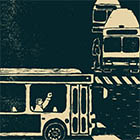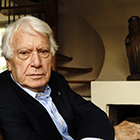
The Dignity of All People
Zohran Mamdani’s successes and failures will shape how people around the country think about the viability of a socialist program, and whether socialists are capable of enacting it.


Zohran Mamdani’s successes and failures will shape how people around the country think about the viability of a socialist program, and whether socialists are capable of enacting it.

The Mamdani campaign extended the arena of political participation to ordinary and unseen people of every place and pursuit. The challenge going forward will be sustaining faith in the idea that the city is ours to make.

Jorge Semprún’s work captures a twentieth century of failed revolutions, lost utopias, and historical trauma of a scale that defies repression.
It’s easy to come up with plans for remaking society. It’s much harder to work alongside ordinary people to build coalitions that can change the rules of the game.

The Inflation Reduction Act presupposes a private sector–led transition. But battles over its implementation could build the political constituencies and expertise needed to take on the fossil fuel industry.

The U.S. climate movement has largely grown in response to setbacks and defeats. What will it do in the face of an underwhelming victory?

An interview with Michael Walzer on The Struggle for a Decent Politics.

Socialism is rooted in a philosophical optimism that our movement is based in a majority.

Chicago’s steel mills are forty years gone to brownfields. Most of the union halls are shuttered. Yet the parks, with their fieldhouses and pools and quiet preserves, remain as enduring gifts from social visionaries.

To prevent socialism from becoming stale orthodoxy, we need to be alive to changes in the world around us.

On the left, talk of proletarian revolution has given way to vital debates about how to enact Medicare for All and a Green New Deal, revive unionism, and strip the power of the Supreme Court.

In a matter of years, DSA has turned from a musty debate club for retired social democrats into an electoral powerhouse of young, ecumenical radicals. What’s next?

A roundtable on Democrats and the left.

Throughout the United States, racial separation remains a common feature of collective life. The consequences are significant for left political organizing aimed at building a multiracial working-class majority.

If there’s a chance to make a better world, our best shot comes from building a working-class majority.